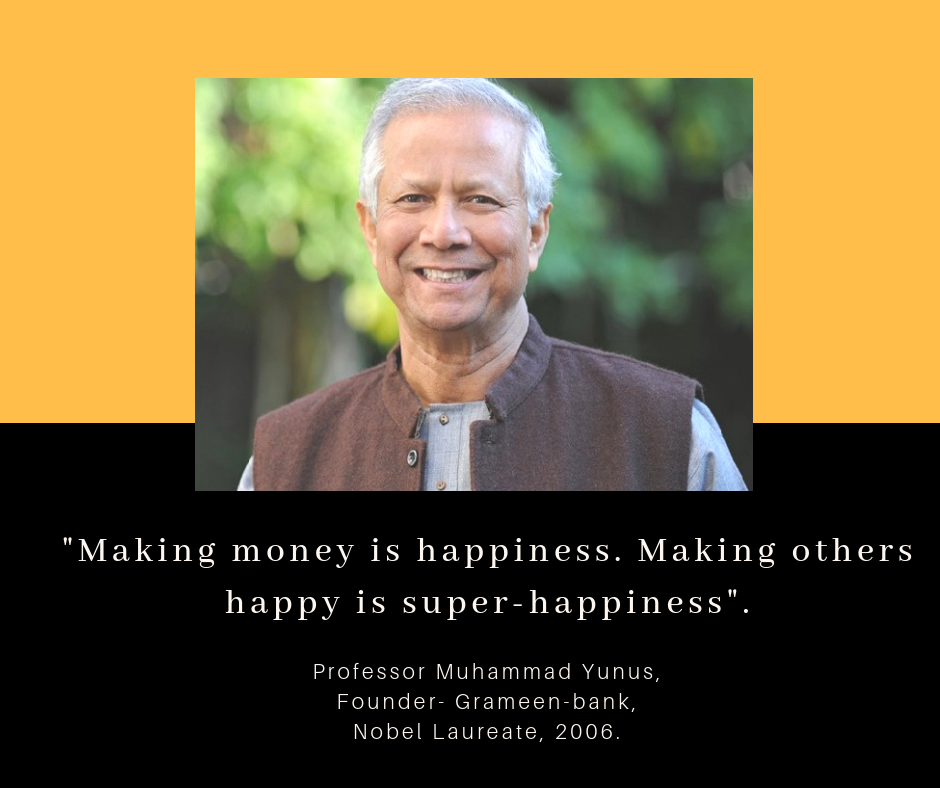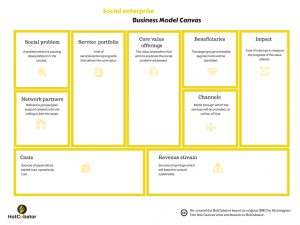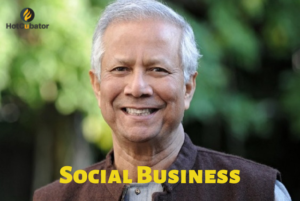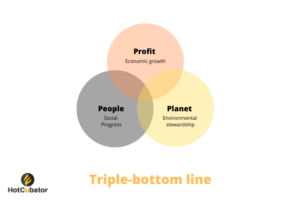
Early in 2015, when the whole Bangladesh went almost into a standstill state, due to deadly political tussle causing nationwide ‘blockade’, I flew to Bangladesh from Australia with to accomplish a mission which almost seemed ‘impossible’- to complete the field work of my PhD degree. I must acknowledge that, I was never a fan of research and the journey to PhD was almost a serendipitous one. As such, undertaking the field work amid of all the chaos was far from an enjoying trip, at least at the beginning!
The topic of my PhD was related with social entrepreneurship, which I chose after tremendously being influenced by reading about the Nobel Laureate Professor Muhammad Yunus, the impact he made in the whole world. I was moved with a simple but profound quote where he said – “Human beings are much bigger than just making money”. As I immersed myself into the social entrepreneurship literature, I was overjoyed to see that Bangladesh has been recognised as a ‘global pioneer’ of social entrepreneurship. It was overwhelming to know that, a number of Bangladeshi social entrepreneurs have championed revolutionary social enterprise business models and have glorified an almost nondescript country like Bangladesh. When the rest of the world is celebrating the glory of social enterprises in Bangladesh, and in the awe of its great social entrepreneurs, ironically yet, the country itself is plagued by lots of problems which were echoed by the participants of my field study.
As soon as I received positive consent from top social entrepreneurs like – Sir Fazle Hasan Abed, Runa Khan among few others agreeing to participate in my research, soon my apprehension turned into a passionate journey disregarding all the perils of blockade which claimed the lives of more than 75 people! I remember, on my way to meet one of the participants for an interview, a petrol bomb thrown at my car could almost fatally injure me! But my passion to meet these visionaries surpassed every feelings! Apart from distilling great stories from the social entrepreneurs, I came to know myriad of challenges that are faced by social enterprise sector in Bangladesh which, if resolved, can offer abundant possibilities.
Structural ambiguity
The biggest problem which all of the social entrepreneurs echoed – is the structural ambiguity of social ventures in Bangladesh. Although there is a mounting enthusiasm on being ‘social’ or doing business with a ‘social purpose’, there is limited understanding on what is a social venture. The apparent ambiguity is reflected in the manifestation of various forms of social ventures e.g. NGOs, co-operatives, social businesses, micro-finance businesses and more recently, private social enterprise start-ups. Although all of these ventures share almost similar purpose – ‘to do good for the society’ – the way they function and operate are far too different.
Lack of awareness
Although social enterprise of Bangladesh has struck a responsive chord worldwide, within the country itself, there exists tremendous lack of understanding and awareness on socially-driven businesses. During the course of my stay in Bangladesh, I interacted with several people who asked me what is my research topic? I remember when I told, ‘social entrepreneurship’, majority of the people looked at me bewilderingly or asked, ‘what is this’? Is it ‘NGO? ‘Are you working for non-profit organisations’? There are some amazing programs like – BRAC Social Innovation Lab, Grameen Social Business Design Lab working to relentlessly promote social entrepreneurial eco-system in Bangladesh, the acceptance and promotion of such programs is far too scant considering the breadth of social problems. Interestingly enough, I was perplexed to explore that, social entrepreneurship is more popular in countries which face less social problems. A search through ‘google trends’ with the keywords ‘social entrepreneurship’, shows that people searched the topic ‘social entrepreneurship’ more often in countries like Australia, USA compared to Bangladesh. In reality, it should the reverse considering the magnitude of burgeoning social problems and the level of scarce support that the government in Bangladesh could offer.
“Human beings are much bigger than just making money”.
Poor regulation
Consistent with ambiguous structural identity, social enterprises in Bangladesh operate under no specific policy or government legislation. This has caused major debate and often led to questions on the role played by social enterprises. Micro-finance, which is a pioneering concept by Bangladesh and replicated even by the developed nations, has been often criticised for exploiting the poor. The biggest micro-finance institution in the world, Grameen-Bank on several occasions has been in public rage due to the allegations of promoting capitalism. This is in part due to the lack of understanding and bottom-line legislation to monitor actions by social ventures. Fortunately, after repeated calls from the stakeholders, in recent years, the government of Bangladesh introduced regulations to monitor social ventures and micro-finance practices.
Uncharted scholarly segment
In Bangladesh, there is hardly any educational institution which offers formal degree or accredited courses to teach social entrepreneurship. This is also the case of academic research, whereas, Bangladesh is literally a hotbed’ for building scholarly research practice in such areas. In contrast, I have seen even primary educational institutions in Australia to embrace topics such as – sustainable thinking, philanthropy to instil the spirit of social welfare at an early age into the pupil’s mind. By the time students reach to college or universities, they pitch ideas to venture capitalists, get exposed to business incubators or travel abroad to network with social entrepreneurs. There are state of the art research facilities in universities aimed towards social innovation which attracts huge funding and international collaborations.
Access to capital
Access to funding stood out as another major challenge for social enterprises. A vast majority of the social entrepreneurs expressed that access to start-up capital and scale-up capital is very limited. This eventually jeopardises the existence of the venture even though, they may have addressed a very vital social issue. The traditional support mechanisms, such as bank or financial institutions that may foster the growth of social enterprises, is scarce compared to commercial enterprises. This is largely, due to the fundamental misconception that socially-driven organisations are not profitable and there is risk involved in lending money. Although Grameen-Bank, the Nobel Prize winning organisation has debunked this myth recording a whopping 220 crore BDT in net profit during 2017, which was a 58% increase from the previous years, the story of other ventures are not as affluent as Grameen-Bank. Except few of the large social enterprises, most of the start-up social enterprises do not receive any funding support either from the public or private sector. In developed societies like Australia – the social entrepreneurs get tremendous support from the government and other funding bodies including private commercial banks.
The experience during my field work helped me tremendously to wrap up my PhD thesis. Furthermore, the awe-inspiring stories of the social entrepreneurs transformed my thought process radically, so much so, that I took it to the next level. I founded a social enterprise based in Australia with the mission to amplify social impact through education and collaboration. In the first year of its launch, HotCubator was able to build partnerships with multiple tertiary educational institutions. Apart from giving the students theoretical knowledge on social entrepreneurship, HotCubator also helped them to ideate and launch their social ventures. With the support of a strong network of transformative leaders and visionaries, we could support several ventures within the first year of HotCubator’s inception. The journey has just began and I am very much inspired to make an impact which was nourished by all the great leaders that I interviewed during my field work in Bangladesh. I also hope that the policy makers in Bangladesh realise the true potential of social entrepreneurship and find ways to incentivise the growth and sustainability of social enterprises. Social entrepreneurs like – Professor Muhammd Yunus and Sir Fazle Hasan Abed showed how a tiny gesture could transform the world, now it is up to future generation of Bangladesh to be inspired and realise the potential of doing business with a social mission which can tackle major social problems easily.
This write up is personal reflection of the author during his PhD field work in Bangladesh.









